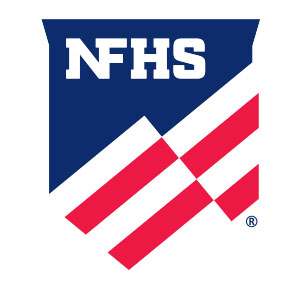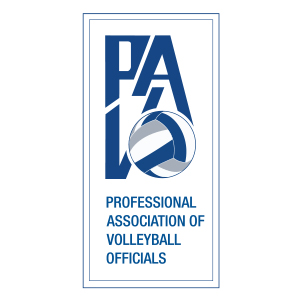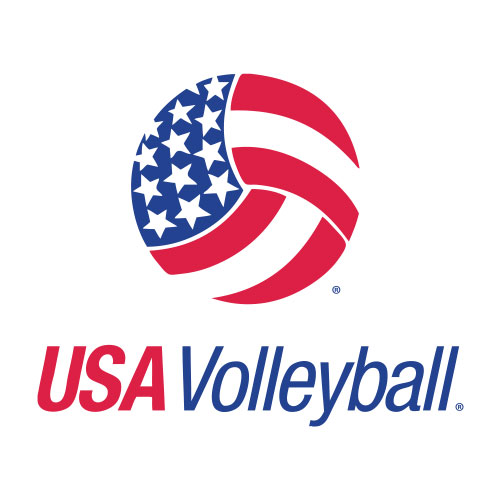Recruit, Retain & Celebrate Sports Officials
- Home
- /
- Become A Sports Official
- /
- Sports
- /
- Volleyball
How To Become A Volleyball Official
Volleyball’s popularity and participation levels are increasing and so is the need for indoor and beach volleyball officials. Volleyball is also a sport you can officiate year-round via youth, school, club, adult recreation and other contests, thus there is a higher earning potential than other sports.
Why Real Officials Love What They Do
Things To Consider
Physical Demands
Volleyball is generally officiated by two referees and two line judges. The first referee in volleyball is positioned on an elevated platform at the side of the net opposite the officials’ table. The first referee does not move around, but they need to stand for long periods, typically 45 minutes to two hours depending on the match’s length, all while maintaining high levels of focus and alertness. The second referee stands on the floor opposite the first referee and assists in making calls, primarily focusing on play at the net. The second referee moves laterally along the sideline opposite the first referee in a 12-foot area and transitions during play with the ball. The line judges stand on opposite corners throughout the entire match and assist the first referee with in and out calls and look for touches of the ball by blockers at the net. Line judges need excellent eye sight, good judgment and agility to move up and down the sideline to get the best view of the ball and avoid collisions with players.
Mental Demands
Volleyball is a fast sport, in a contained area. Therefore, being able to visually follow the action and see small details is very important. Volleyball officials must always maintain alertness and focus during play so as not to miss a detail. Many calls in volleyball require swift judgement without hesitation, so a decisive nature and confidence are key attributes to have or develop. A volleyball official on average makes over 1,000 decisions in a match.
Training
Volleyball officiating doesn’t have as many physical demands as some other sports, but you must know and understand the game well to effectively make accurate calls. You can train yourself with rule books and manuals from the Referee Training Center, but you should also join a local officials association where you can expect lectures, demonstrations and exercises that will prepare you for what you’ll face.
Different organizations have different requirements, but most require at least attendance at a meeting to go over any current rule changes. Additional requirements include written test with a minimum passing score, payment of fees for the upcoming season and association meeting attendance
Equipment
- Black slacks (high school.) Navy Blue slacks (USAV & NCAA)
- Black leather belt.
- Solid black athletic shoes (high school.) Solid white athletic shoes (USAV & NCAA)
- Black socks (high school). White socks (USAV & NCAA).
- White polo shirt
- Referee tools: A watch, whistle, net measuring device, flipping coin (size of a quarter or larger is recommended), ball gauge, air pump, red & yellow sanction cards, pen or pencil and lineup cards. Estimated starting cost: $200. Once you join a local officiating association, there may be veteran officials who are willing to give or sell you used equipment at a reduced cost.
Game Fees
Game fees vary widely based on the players’ age group, competitive level and the state you officiate in. You can expect the fees to range from $10-$25 for youth games and $25-$80 for competitive high school games. To maximize your income, you can work a combination of levels several days a week, including weekend tournaments where you can work games all day. You can also work adult amateur and youth recreational leagues year-round to make reliable income. A volleyball official with a full schedule can make several hundred dollars per week outside their normal jobs.
Assistance
Ask a respected veteran official to be your mentor. That mentor will help answer your questions and provide crucial support. Don’t be afraid to ask questions about situations and rules.
Certification
Here’s the path for starting and continuing your officiating career
Youth Level
Many officials start at the youth level. Contact your local recreation department leaders. Your local association should also help you make contacts to get games. Parks & Rec departments offer youth and adult games in many cities and you can potentially work multiple games per day on the weekends for schools and independent organizations, enhancing your earning potential.
High School
 After working youth games, you may feel you have the skills and confidence to work higher levels of competition. You may also start at this level if you have a good grasp of the rules and/or experience as a player. For Jr. High games, ask your association leader or contact your school district. For high school games, you’ll need to work with an assigner through your local association. Any work with sanctioned school games requires you to be registered through your state, to prove you’re competent of the rules.
After working youth games, you may feel you have the skills and confidence to work higher levels of competition. You may also start at this level if you have a good grasp of the rules and/or experience as a player. For Jr. High games, ask your association leader or contact your school district. For high school games, you’ll need to work with an assigner through your local association. Any work with sanctioned school games requires you to be registered through your state, to prove you’re competent of the rules.
The National Federation of State High School Associations (NFHS) is the nation’s governing body for high school athletics. Through them you can get all the information you need from your state to register and start the process to work High School sports.
Begin your High School soccer officiating journey at highschoolofficials.com
In most cases, your state association can put you in contact with a local officials’ association. Local associations assign games, many times offer mentoring programs and assist in training.
High school athletic directors, association assigners and other officials can also you get games.
Plan to attend local camps and clinics. They are focused on helping officials learn and improve.
College
 College volleyball officiating is highly competitive. Officials with one year of youth experience would most likely not be a candidate even though there isn’t a designated number of years of experience to reach the college ranks.
College volleyball officiating is highly competitive. Officials with one year of youth experience would most likely not be a candidate even though there isn’t a designated number of years of experience to reach the college ranks.
Most college volleyball officials are members of the Professional Association of Volleyball Officials (PAVO). PAVO is a nationwide organization with approximately 100 local chapters, and is involved with training and certification collegiate line judges and referees.
National Association of Sports Officials
You may also consider joining NASO, the only nation-wide officials support organization. As a member-driven community; NASO exists to unite, celebrate, develop and protect all officials so that they can reach their goals and take pride in their contributions to the benefits that sports provide society.
Learn more about NASO at NASO.org.




